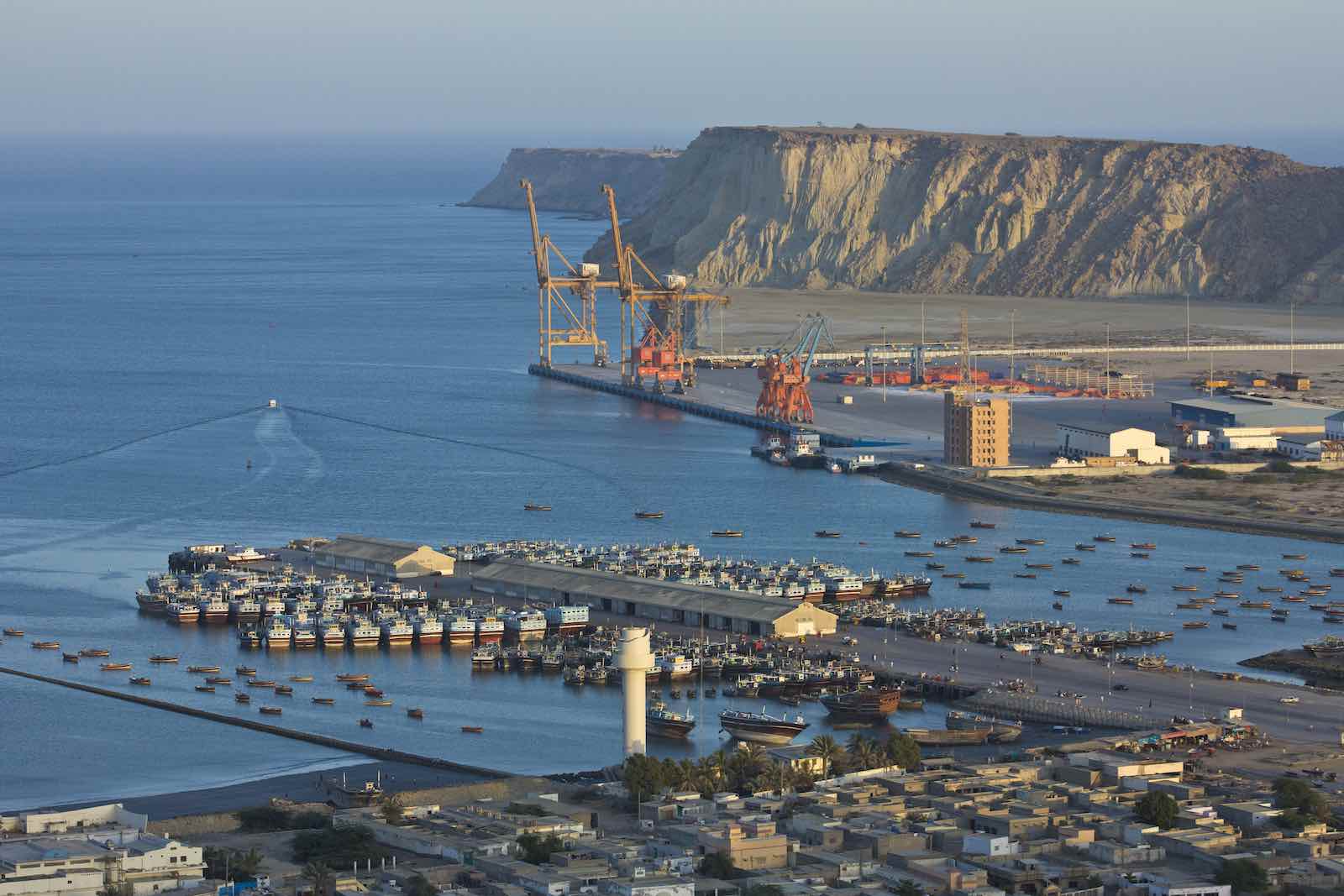KARACHI (Sep 21): Liu Jinsong, Director-General of the Asian Affairs Department of the Ministry of Foreign Affairs of China, met with a delegation from Pakistan’s Gwadar region, headed by Dr Abdul Razzaq Sabir, Vice Chancellor of University of Gwadar.
Liu Jinsong welcomed Dr Abdul Razzaq Sabir and the delegation to China and engaged in discussions and interactions with each member of the delegation. He emphasised that over the past decade since the launch of the China-Pakistan Economic Corridor (CPEC), with the joint efforts of both China and Pakistan, significant infrastructure projects in Gwadar, including ports, airports, roads, bridges, hospitals, and desalination plant have been completed and put into operation, bringing tangible benefits to the local people.
Liu pointed out that China attached great importance to the well-being and economic development of Balochistan and Gwadar region in Pakistan and continued to invest, demonstrating that China’s friendly policy towards Pakistan was oriented towards all ethnic groups in Pakistan, that the CPEC projects had benefited all regions, tribes and social strata of the country, and that the China-Pakistan Friendship and Cooperation had a very strong inclusiveness and universally beneficial nature.
“The construction of the CPEC benefits every region in Pakistan, and there will be no exceptions. All projects undertaken by China in various parts of Pakistan, including Gwadar Port, are based on the principles of extensive consultation, joint construction, and shared benefits, respecting Pakistan’s sovereignty and the wishes of the local people, and ultimately benefiting the grassroots population.
China requests Chinese nationals in Pakistan to abide by local laws, respect local customs, traditions, religions, and cultures, uphold justice while pursuing shared interests, create more job opportunities locally, and engage in more grassroots and charitable activities.
China will continue to enhance communication and cooperation with the Balochistan government, public institutions, think tanks, universities, media, and grassroots communities, promoting comprehensive cooperation in connectivity, trade and investment, people’s livelihood, and education, to make more local people feel the benefits and happiness brought by the high-quality development of the CPEC.”
Liu pointed out that China-Pakistan cooperation needed to balance security and development, with security being a prerequisite and guarantee for development. Counter-terrorism efforts must address both the symptoms and root causes, and genuine long-term stability can only be achieved by reducing poverty and unemployment, and by eliminating external interference and disruption.
Liu expressed the hope that the Pakistani side would attach greater importance to the security of CPEC projects, build consensus and resources for development. China is willing to work with Pakistan to eradicate the breeding grounds for terrorism.
Liu stated that there was a famous saying on the Pakistan Monument at the top of Shakarparian Park: “The destiny of a nation is in the hands of every individual, and every individual is a guiding star for their nation.”
The key to Pakistan’s development lies in self-confidence, self-improvement, and self-reliance. Concepts such as “To get rich, first build ports and roads,” “Establish pilot projects and special economic zones,” “No stability without agriculture, no prosperity without industry, no vitality without commerce, and no upgrading without finance” are all mature experiences from China’s reform and opening up that Pakistan can refer to and learn from. China sincerely hopes that Pakistan will maintain political stability and policy continuity and adhere to a development path that suits its national conditions.
Dr Sabir and the delegation highly praised China’s development achievements and the China-Pakistan relationship. They expressed their deep appreciation for witnessing China’s people being hardworking, humble, disciplined, brave, and kind.
They also acknowledged China’s unparalleled modernization achievements and admired President Xi Jinping’s wise leadership and the proposed neighborhood diplomacy concept of amity, sincerity, mutual benefit and inclusiveness.
Pakistan takes pride in being a friend of China and sees China’s achievements as its own. Pakistan’s friendship with China transcends party lines, encompasses the entire government, and is a consensus across society. Pakistan was one of the earliest countries to respond to the Belt and Road Initiative (BRI).
Over the past decade, the construction of the CPEC has continued unabated, injecting strong impetus into the development of various regions in Pakistan, including Balochistan province and Gwadar region.
The people of Gwadar deeply feel the speed, effectiveness, inclusiveness, and universal benefits of corridor cooperation and firmly believe that people from all over Pakistan will continue to benefit from the friendly cooperation between the two countries.
They look forward to further enhancing people-to-people exchanges and practical cooperation between the two countries, ensuring that China-Pakistan friendship continues to grow and pass down from generation to generation.
















